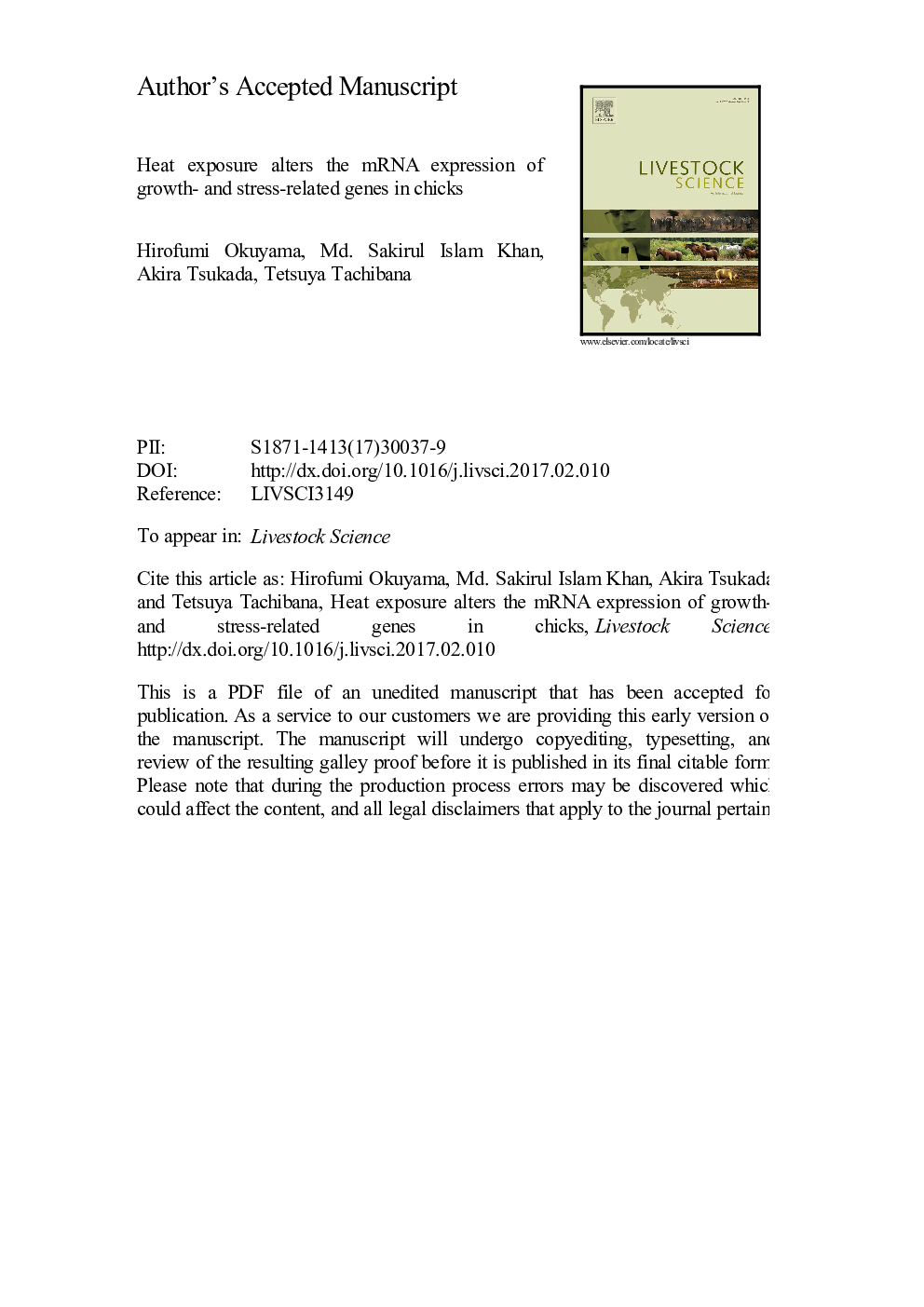| Article ID | Journal | Published Year | Pages | File Type |
|---|---|---|---|---|
| 5543147 | Livestock Science | 2017 | 31 Pages |
Abstract
High ambient temperature, a major stressor, impairs the growth of chickens. In this study, we examined the effect of heat exposure on the mRNA expression of various growth related genes, such as growth hormone (GH), insulin-like growth factor-1 (IGF1), GH-releasing hormone (GHRH), thyrotropin-releasing hormone (TRH), and somatostatin (SST) in layer-type chickens (Gallus gallus domesticus) at an early age. In addition, we examined the reactivity of the corticotrophin-releasing hormone (CRH) system, one of the stress-regulating pathways, to heat exposure and its role in altering the growth related genes. Four-day heat exposure reduced the body weight gain, feed intake, and feeding efficiency and increased the rectal temperature of chicks (P<0.05). The mRNA expression levels of pituitary GH, liver IGF1, and diencephalic GHRH decreased with heat exposure (P<0.05) whereas the levels of TRH or SST did not change. Heat exposure also reduced the diencephalic mRNA expression level of CRH and increased pituitary CRH receptor-2 mRNA and the plasma corticosterone (CORT) concentration (P<0.05), suggesting that heat exposure affected the hypothamic-pituitary adrenal gland (HPA) axis. Similar to the heat-exposure study, subcutaneous injection of CORT for 4 days decreased body weight, and the mRNA expression of pituitary GH and liver IGF1 (P<0.05). The present study demonstrated that heat exposure reduced the mRNA expressions of pituitary GH and liver IGF1, and suggested that the change in mRNA expression may have been partly caused by CORT.
Related Topics
Life Sciences
Agricultural and Biological Sciences
Animal Science and Zoology
Authors
Hirofumi Okuyama, Md. Sakirul Islam Khan, Akira Tsukada, Tetsuya Tachibana,
